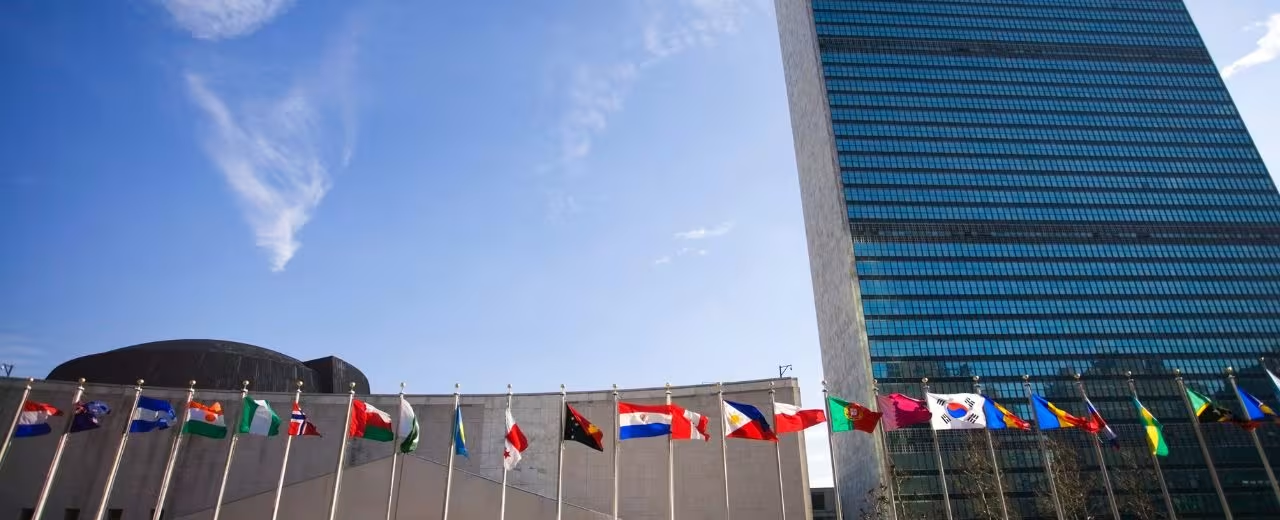In an increasingly interconnected and unpredictable world, global markets are shaped not only by economics but also by political shifts, regional tensions, and international relations. This is where the study of geopolitics becomes invaluable for business leaders. Many international business schools have recognized this and now integrate geopolitics into their programs.
Here are nine prominent institutions where students can gain both business acumen and a deep understanding of geopolitical dynamics.
1. HEC Paris – France
HEC Paris is globally recognized for combining academic rigor with global perspectives. The school offers a dedicated summer program called Geopolitics, Globalization, and Business Strategy. It focuses on how political landscapes influence market trends, corporate strategies, and risk management. Students learn to evaluate international developments and anticipate their business impacts.
2. ESSEC Business School – France
ESSEC incorporates geopolitics into its MBA curriculum through a course titled Geopolitics and Business. The program covers current political challenges, regional conflicts, trade policies, and how these factors shape global markets. ESSEC ensures the syllabus is regularly updated to keep pace with global events, giving students a timely and practical understanding.
3. IESE Business School – Spain
IESE’s full-time MBA offers the elective Strategy and Geopolitics, one of its most sought-after courses. Taught to an international student body, the course explores how businesses can develop strategies that account for political risk, cultural differences, and economic volatility. The highly diverse cohort ensures discussions are enriched by a wide range of perspectives.
4. Grenoble École de Management – France
Grenoble’s MBA program includes an in-depth Geopolitics module. Spanning several semesters, it examines different global regions and trains students to conduct real-world geopolitical analyses. Practical exercises help students assess political risks, identify opportunities, and make strategic decisions in volatile environments.
5. University of Oxford – Saïd Business School – UK
Oxford’s MBA integrates geopolitics into its curriculum through the elective Business Strategy and Politics. The course uses real-world simulations and case studies to teach students how to navigate the interplay between government policy and corporate strategy. It is particularly valuable for those aiming to work in industries affected by regulatory or political changes.
6. Yale School of Management – USA
Yale SOM offers the course Geopolitics and Global Business as part of its Global Network Weeks. The program immerses students in discussions on how companies navigate cross-border challenges, sanctions, and international partnerships. Yale’s strong global partnerships give students firsthand exposure to diverse political and business environments.
7. Wharton School, University of Pennsylvania – USA
Wharton provides courses under the umbrella of Law, Economics, and Geopolitics. Students explore how political systems, international laws, and trade agreements affect global commerce. Topics like WTO regulations, arbitration, and sanctions are studied in depth, preparing graduates to handle legal and political complexities in business.
8. USC Marshall School of Business – USA
Marshall offers a global business track that merges international relations with corporate strategy. Students participate in the signature PRIME study trips, where they visit other countries to analyze the geopolitical and economic factors influencing local markets. This hands-on approach helps them see the direct impact of politics on business operations.
9. Rennes School of Business – France
Rennes stands out with its Master of Science in Geopolitics and Business. The program combines strategic intelligence with practical business applications. Students study topics like net-zero strategies, Eurasian policy, and geo-economics, while engaging in experiential projects and internships that bring theory to life.
Honorable Mentions: Schools with Broader Geopolitical Integration
While the above nine schools stand out, others also integrate geopolitics into their programs:
-
Neoma Business School (France) – Offers modules on crisis anticipation, leadership under pressure, and global migration trends.
-
Vlerick Business School (Belgium) – Blends geopolitics with leadership development, focusing on macro-level challenges.
-
Nova School of Business and Economics (Portugal) – Explores the intersection of social impact, strategy, and political risk.
-
IMD Business School (Switzerland) – Provides executive programs focused on navigating geopolitical volatility through risk intelligence and strategic foresight.
Why Geopolitics Matters in Business Education
-
Strategic Resilience
In today’s volatile environment, leaders must prepare for trade wars, sanctions, and political instability. Geopolitical knowledge enables them to anticipate disruptions and adapt strategies accordingly. -
Global Perspective
Business decisions can no longer be made in isolation. Understanding how political, economic, and cultural factors intertwine is key to thriving in international markets. -
Real-World Application
Many programs include simulations, field trips, and case studies to ensure that students can apply geopolitical insights directly to their careers. -
Diverse Networking
Studying alongside an international cohort exposes students to a wide range of perspectives, preparing them for cross-cultural collaboration. -
Specialization Opportunities
From dedicated MSc degrees to MBA electives, students can choose the level of geopolitical focus that best suits their career ambitions.
Choosing the Right Program
Selecting the right school depends on your career goals:
-
For a deep dive into geopolitics: Rennes MSc, HEC Paris, and IMD executive programs.
-
For integrated MBA electives: ESSEC, IESE, Wharton, Yale SOM, and Oxford Saïd.
-
For early-career development with a social impact focus: Neoma, Vlerick, Nova SBE.
-
For leadership readiness in complex environments: IMD, HEC Paris, ESSEC summer courses.
Final Thoughts
The boundary between geopolitics and business is increasingly blurred. Political developments—from regional conflicts to global treaties—can reshape supply chains, shift markets, and redefine corporate strategies overnight. Business leaders who understand these dynamics have a clear advantage.
By choosing one of these nine international business schools, students equip themselves with the tools to not only manage but also thrive in a world where global politics and commerce are inseparable. These programs prepare graduates to think strategically, act decisively, and lead effectively in an era of constant geopolitical change.
